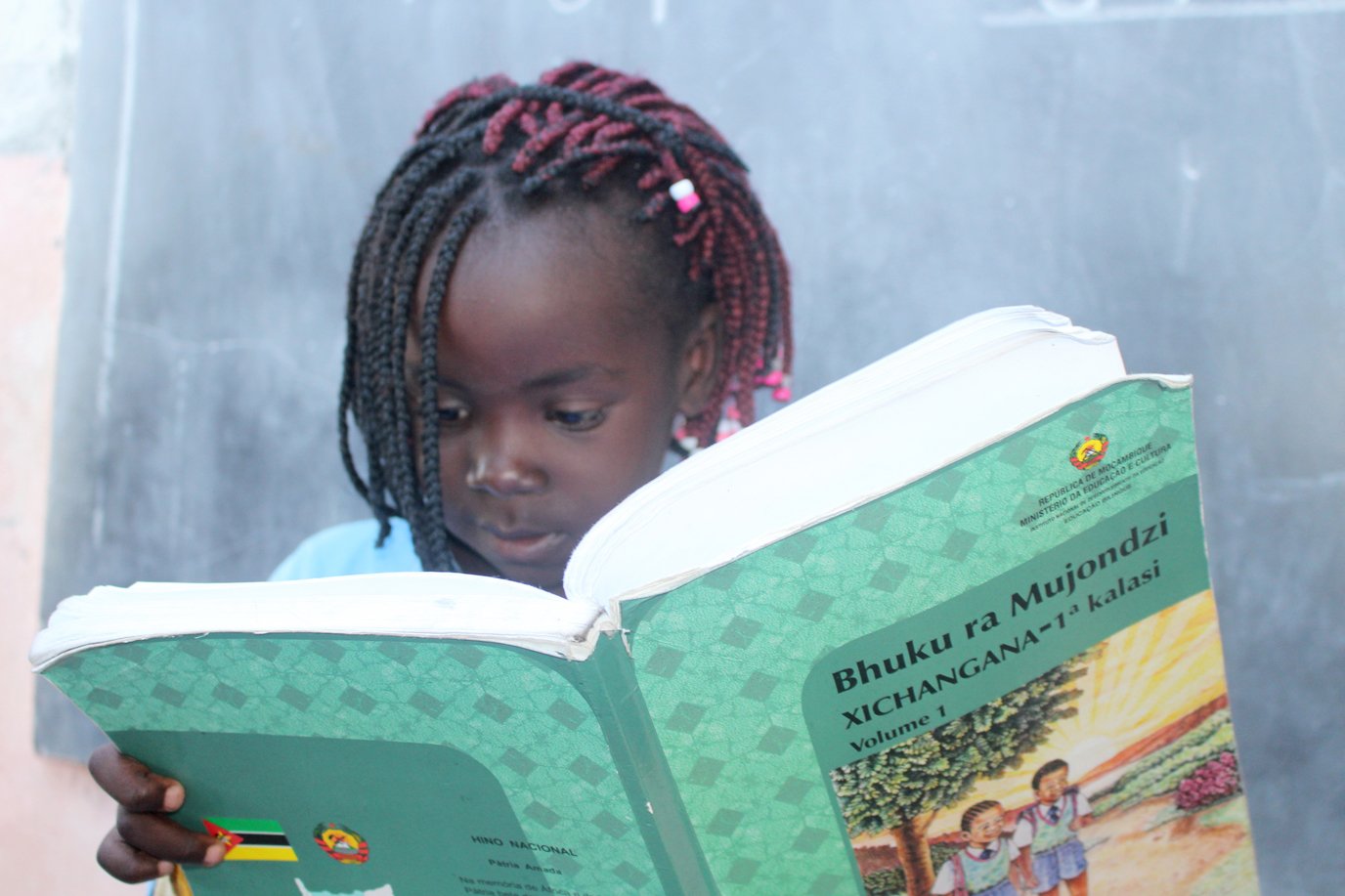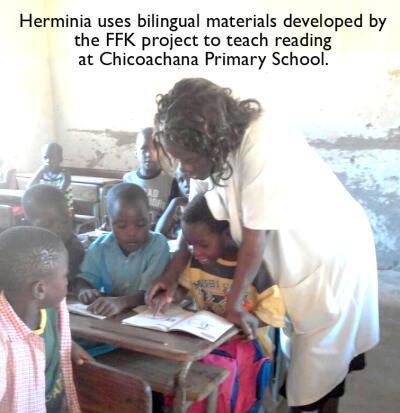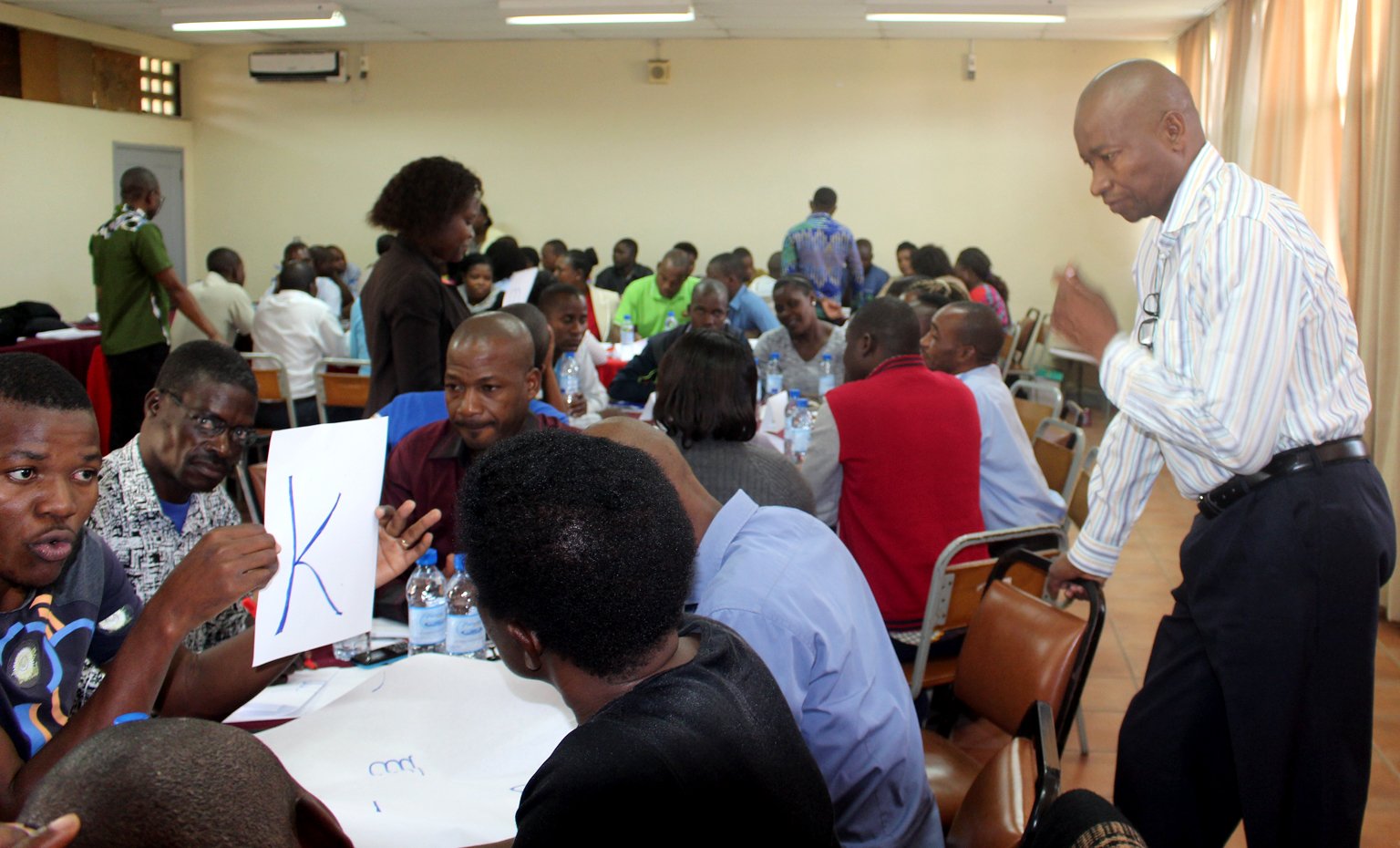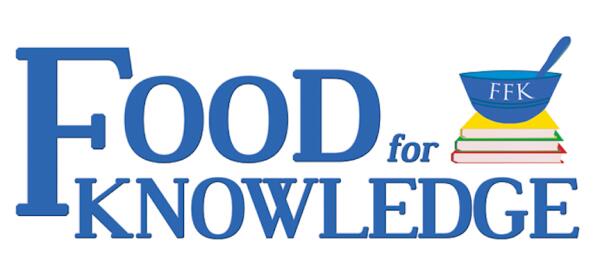Teaching Children to Read in Their Local Language

A person who can read possesses the keys that unlock lifelong learning and development. In Mozambique, colonial occupation largely denied black Mozambicans educational opportunities. When the country finally achieved independence in 1975, 93 percent of the population was illiterate.
Mozambique has since made significant advancements in literacy; however, 50 percent of adults still cannot read or write today, and the percentage is even higher for adult women.
Early Grade Reading in Local Languages
Planet Aid's Food for Knowledge project is focusing on raising the nation's literacy rates by making reading and writing skills more accessible to students in primary grades. "Our main focus is to have the largest number of children finishing third grade who know how to read and write," said Olivia Machel, literacy component manager for Food for Knowledge.
To achieve this goal, the project has developed early grade teaching materials in the common local languages of either Changana or Ronga as well as Portuguese. Portuguese is the national language traditionally taught in Mozambican schools; however, children speak in local languages, which creates an obstacle in learning to read.
 The Challenge of Learning to "Decode"
The Challenge of Learning to "Decode"
With the new mother-tongue materials, students will be able to more readily "decode" simple texts as the sounds associated with the words they see reflect their first language. "A child learns better in the language that they dominate, which is why we decided to move towards bilingual teaching with locally spoken languages," explained Machel.
Cambridge Education—with input from Planet Aid and ADPP Mozambique and in coordination with the Ministério da Educação Desenvolvimento Humano de Moçambique—have produced the materials for Food for Knowledge. "There are 12 titles of Xichangana and Xironga student books, 12 story books, 3 decodable books, a teacher's manual, letter cards, and conversation posters for developing listening and speaking skills," said Machel.
Training Teachers
In addition to having developed these materials, Food for Knowledge is also training teachers in student-centered bilingual methodologies that include an emphasis on phonics. "The teachers are being trained in phonemic awareness, phonetics, fluency, vocabulary, and comprehension," said Machel. Teachers who have trained and have begun using the materials have observed greater response from their students.
"I see great interaction in the classroom with the students. This is the result of the relaxation they feel because they can communicate in a language that they know," explained Herminia, a teacher who has been using the bilingual materials at Chicoachana Primary School.

Using the bilingual approach, students will have acquired a solid reading foundation and begin learning Portuguese in grade 3. Approximately 27,000 students in grades 1 through 3 will be taught to read using the new materials and methods.
The Planet Aid Food for Knowledge project in Mozambique is funded by the U.S. Department of Agriculture as part of the McGovern-Dole International Food for Education and Child Nutrition Program.

